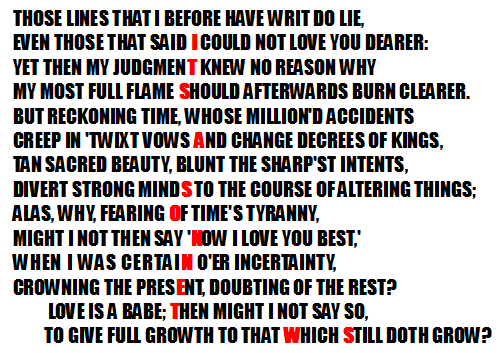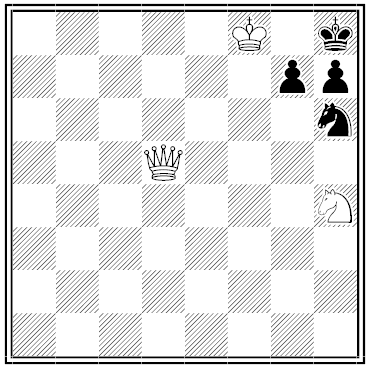Future History
“A Tryst,” a sadly prophetic poem by Celia Thaxter, from the Atlantic Monthly, August 1872:
From out the desolation of the North
An iceberg took its way,
From its detaining comrades breaking forth,
And travelling night and day.
At whose command? Who bade it sail the deep
With that resistless force?
Who made the dread appointment it must keep?
Who traced its awful course?
To the warm airs that stir in the sweet South
A good ship spread her sails;
Stately she passed beyond the harbor’s mouth,
Chased by the favoring gales.
And on her ample decks a happy crowd
Bade the fair land good by;
Clear shone the day, with not a single cloud
In all the peaceful sky.
Brave men, sweet women, little children bright,
For all these she made room,
And with her freight of beauty and delight
She went to meet her doom.
Storms buffeted the iceberg, spray was swept
Across its loftiest height;
Guided alike by storm and calm it kept
Its fatal path aright.
Then warmer waves gnawed at its crumbling base
As if in piteous plea,
The ardent sun sent slow tears down its face,
Soft flowing to the sea.
Dawn kissed it with her tender rose-tints, eve
Bathed it in violet;
The wistful color o’er it seemed to grieve
With a divine regret.
Whether day clad its clefts in rainbows dim
And shadowy as a dream,
Or night through lonely spaces saw it swim
White in the moonlight’s gleam,
Ever Death rode upon its solemn heights,
Ever his watch he kept;
Cold at its heart through changing days and nights
Its changeless purpose slept.
And where afar a smiling coast it passed
Straightway the air grew chill,
Dwellers thereon perceived a bitter blast,
A vague report of ill.
Like some imperial creature, moving slow
Meanwhile, with matchless grace,
The stately ship, unconscious of her foe,
Drew near the trysting-place.
For still the prosperous breezes followed her,
And half the voyage was o’er;
In many a breast glad thoughts began to stir
Of lands that lay before:
And human hearts with longing love were dumb
That soon should cease to beat,
Thrilled with the hope of meetings soon to come,
And lost in memories sweet.
Was not the weltering waste of water wide
Enough for both to sail?
What drew the two together o’er the tide,
Fair ship and iceberg pale?
There came a night with neither moon nor star,
Clouds draped the sky in black;
With straining canvas reefed at every spar,
And weird fire in her track,
The ship swept on, a wild wind gathering fast
Drove her at utmost speed;
Bravely she bent before the fitful blast
That shook her like a reed.
O helmsman, turn thy wheel! Will no surmise
Cleave through the midnight drear?
No warning of the horrible surprise
Reach thine unconscious ear?
She rushed upon her ruin; not a flash
Broke up the waiting dark:
Dully through wind and sea one awful crash
Sounded, with none to mark.
Scarcely her crew had time to clutch despair,
So swift the work was done;
Ere their pale lips could frame a speechless prayer
They perished, every one!
Fixer-Upper

In 1766, French draughtsman Charles-Louis Clérisseau painted a room in the Trinità dei Monti convent in Rome to resemble a ruin, complete with a fallen ceiling and broken walls. A table was disguised as a damaged cornice, a desk as a shattered sarcophagus, and the kennel of the monks’ dog became a toppled urn.
“Building ruins in Rome might seem a waste of effort,” writes Robert Harbison in The Built, the Unbuilt, and the Unbuildable, “but the point was that one could comfortably inhabit this one, getting all the beauty of disorder without the inconvenience.”
In a Word
epeolatry
n. the worship of words
A selection of adjectives, from Laurence Urdang’s Modifiers (1982):
abbatial, of an abbot
buccinal, of trumpets
cervine, of deer
compital, of a crossroads
contabescent, of atrophy
culicid, of mosquitoes
frumentaceous, of wheat
haruspical, of a soothsayer
macropodine, of kangaroos
natant, of swimming
obumbrant, of an overhang
orarian, of the seashore
pavonine, of peacocks
smaragdine, of emeralds
sphingine, of a sphinx
suspirious, of a sigh
trochilidine, of hummingbirds
tussal, of a cough
veliferous, of sails
“The word good has many meanings,” wrote Chesterton. “For example, if a man were to shoot his grandmother at a range of five hundred yards, I should call him a good shot, but not necessarily a good man.”
Hint
Discovered by Mike Keith — Shakespeare’s 115th sonnet contains a message from the author:

Repeat Performance
The index of the 57th edition of the Handbook of Chemistry and Physics includes the entry Sea water, see Water, sea.
The Latin phrase Malo malo malo malo can be translated as “I would rather be in an apple tree than a bad boy in adversity.”
Betty and Jock Leslie-Melville’s 1973 book Elephant Have Right of Way cites the Swahili sentence Wale wa Liwali wale wale (“the people of the Arab chieftain eat cooked rice”). “How is it pronounced? Just say ‘Wally’ five times.”
And in Finnish the utterance “Kokko, gather up the whole bonfire. The whole bonfire? The whole bonfire, Kokko, gather up!” is rendered as Kokko, kokoa koko kokko kokoon. Koko kokkoko? Koko kokko, Kokko, kokoa kokoon!
(Thanks, Jani.)
A Portable Dip

Robert Gildea’s “water lounge,” patented in 1975, brings a pool to your patio:
Swimming pools are not only cumbersome and expensive but require open space where they are located. The ever increasing problem of accidents around such devices is also of concern. While the public has long sought a more convenient and less expensive device for cooling the body in the summer time, no such devices have been introduced. A device much smaller than the traditional swimming pool having the same general beneficial characteristics without the detrimental ones has long been sought.
The answer is to turn the lounge into a basin that can be filled from a hose. An umbrella “prevents the water from rapidly rising in temperature, which makes the water lounge more refreshing.”
The Willow Cathedral

For a 1793 treatise on the principles of Gothic architecture, Scottish architect Sir James Hall built an example using natural materials:
The wicker structure, as shewn in the frontispiece, was formed according to the plan of the cloister of Westminster Abbey, by a set of posts of ash about three inches in diameter thrust into the ground, with a set of willow rods of about an inch in diameter applied to them, the whole being conducted as already fully described. The construction answers perfectly well in practice, and affords a firm support for the thatch.
“The summit of the roof within is about eight feet high,” he added, “so that a person can walk under it with ease.”
Memento

In 1798 Horatio Nelson’s navy defeated a French fleet off the coast of Egypt. Captain Benjamin Hallowell, who helped to destroy the French flagship L’Orient, sent Nelson a macabre gift:
My Lord,
Herewith I send you a Coffin made of part of L’Orient’s Main mast, that when you are tired of this Life you may be buried in one of your own Trophies — but may that period be far distant, is the sincere wish of your obedient and much obliged servant,
Ben Hallowell
Nelson was indeed buried in it after his death in the Battle of Trafalgar in 1805.
The Lakes of Wada

Find a square island and establish a blue lake on it, bringing blue water within a certain distance of every point on the island’s remaining dry land. Then create a red lake, bringing red water even closer to every point on the remaining land, and a green lake bringing green water still closer.
If you continue this indefinitely, irrigating the island more and more aggressively from each lake in turn, you’ll reach the perplexing state where the three lakes have the same boundary. Japanese mathematician Kunizo Yoneyama offered this example in 1917.

